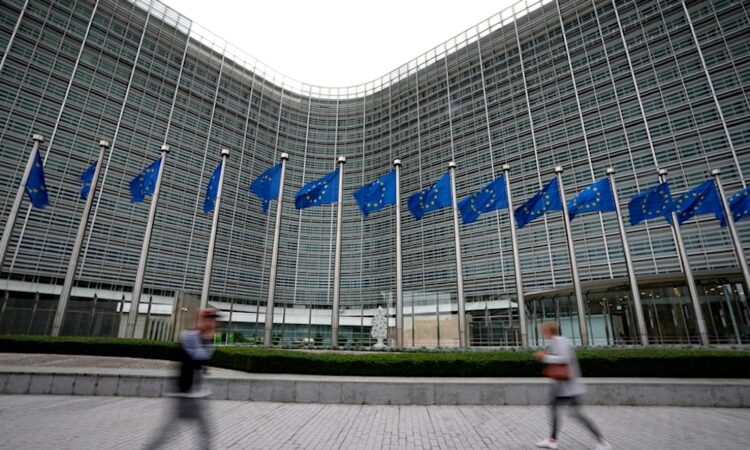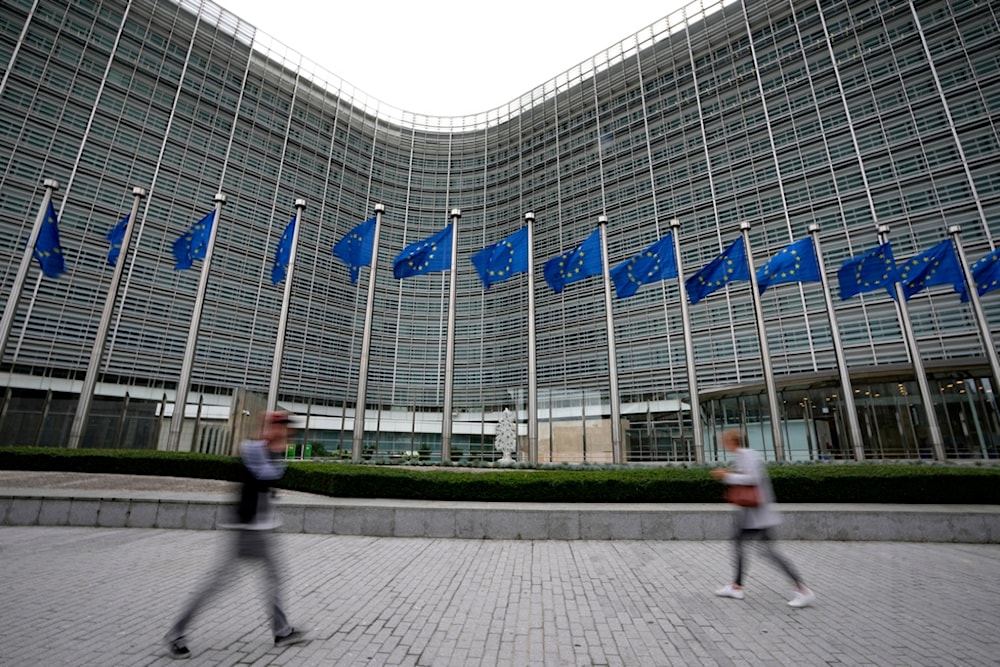
EU members enforced new sanctions against Russia in February, aiming to curb its actions, but doubts persist over their efficacy, raising concerns about economic impacts and strained relations with China.
-

European Union flags wave in the wind as pedestrians walk by EU headquarters in Brussels, on September 20, 2023. (AP)
At the close of February, European Union member nations united to endorse a 13th iteration of sanctions against Russia, marking a continued effort to attempt to contain Russia.
EU officials have justified these sanctions as a strategic move to disrupt the supply chain for military-related products, targeting several foreign companies from third countries allegedly aiding Russia in circumventing EU measures.
A Modern Diplomacy report revealed that doubts linger regarding the efficacy of these sanctions, with Western acknowledgment of their limited impact on the Russian economy over the past two years. Notably, German Bundestag member Matthias Moosdorf underscored that “in Russia itself, they strengthen the mentality of a ‘besieged fortress‘. The actual costs of sanctions for the EU have already exceeded €500 million.”
Moosdorf then emphasized, “This is just ridiculous and was doomed from the start.”
Furthermore, the report showed that analysts had cautioned that while the next round of EU sanctions may not inflict significant harm on the Russian economy, it could sour Europe’s economic landscape and strain political relations with key partners like China.
China has swiftly voiced opposition to the sanctions, pledging to safeguard its interests. This stance adds complexity to an already fraught situation, compelling European policymakers to tread carefully in their decision-making regarding further restrictions.
It is argued that these sanctions not only symbolize the EU’s ongoing efforts, but also underscore the bloc’s precarious position in the geopolitical arena. As such, attention turns to the potential ramifications of these actions, with implications extending beyond immediate economic impacts to include broader geopolitical dynamics and international relations.
Borrell: Next months decisive for Ukraine-Russia conflict
During a visit to Washington, EU foreign policy chief Josep Borrell revealed on March 14 that the upcoming months are decisive for the Ukraine-Russia conflict calling on allies to bolt aid to Kiev.
Borrell’s visit to Washington was to meet Secretary of State Antony Blinken among other events following his New York visit to direct the UN Security Council.
“It’s this spring, this summer before autumn that the war in Ukraine will be decided,” Borrell said.
Borrell stated that in all his meetings, he has shed light on the outcomes of a possible Russian victory in Ukraine.
Read more: No breaks or rotation; Ukraine’s war drafting saga continues






